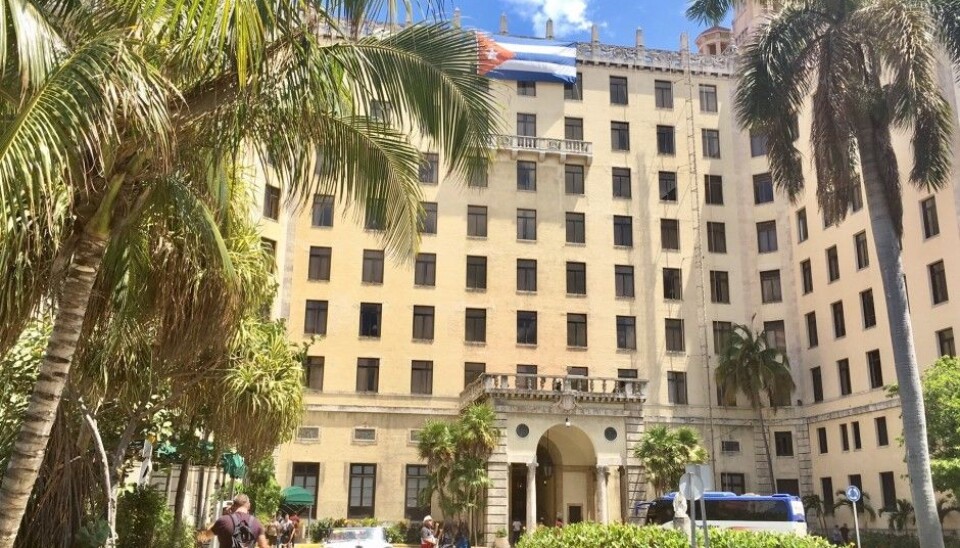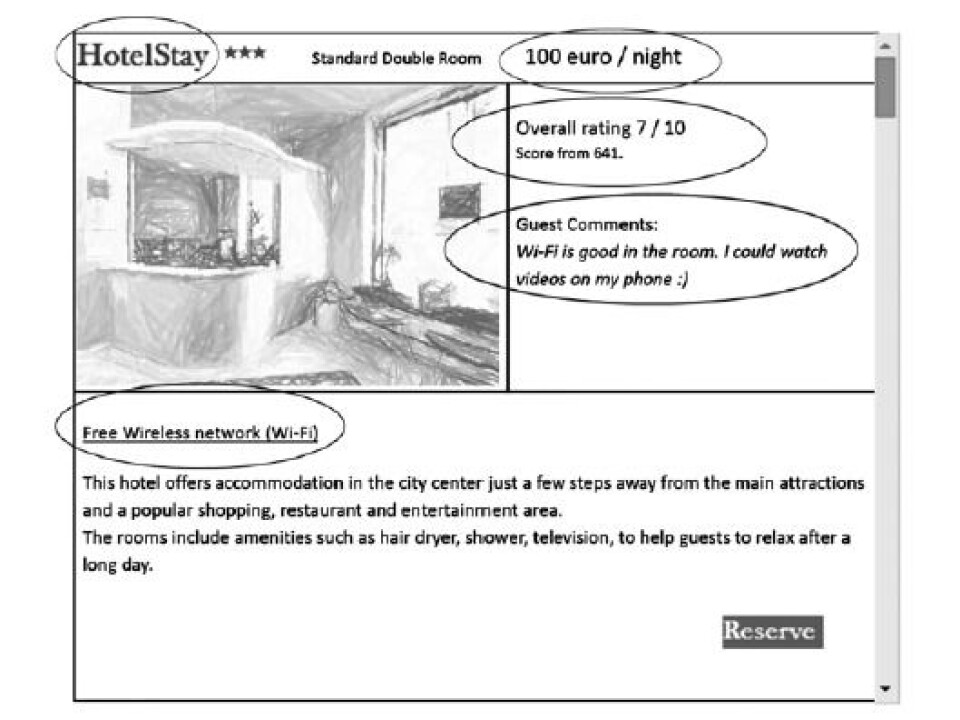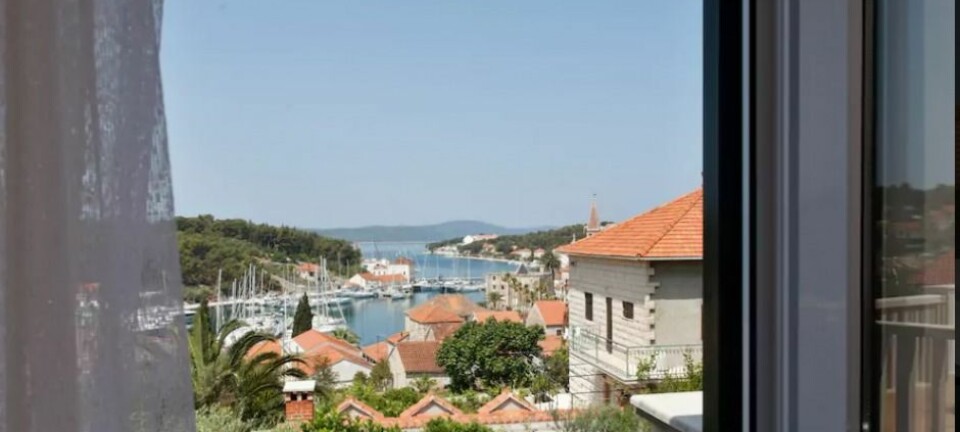
Wi-Fi services get high priority when booking hotels
Assurance of ample internet connections is more important among young people reserving rooms than a hotel chain’s brand.
As a tourist in a new place you might be eager to share photos you took with your mobile phone of famous attractions and cool places on social media. Or perhaps you want to check out the news after a day of sightseeing.
Some of the holiday joy can be lost when the web connection at your hotel is unstable and slow. It’s a drag when your updates on Facebook get paused for minutes on end until you get logged out for inactivity.
“Good internet connectivity can be the slight advantage that makes young tourists choose one hotel instead of another,” Asle Fagerstrøm. He is a researcher at the behaviour lab of Westerdals Oslo School of Arts, Communication and Technology.
Asle Fagerstrøm has conducted research on the importance young people place on web access when booking hotels.
From “hopeless” to “brilliant” web access

The price of a hotel is also an issue, especially for young students visiting a foreign country on a shoestring budget. Another key factor is the reviews of hotels posted by previous guests.
But how important is the hotel’s web service compared to its other features? Asle Fagerstrøm and Niklas Eriksson at Arcada University of Applied Sciences in Helsinki, Finland wanted to know.
So they started an experiment with the help of 120 young students. Their average age was 22 and most of them were women.
They constructed customer evaluations of the Wi-Fi network from: “The internet was so weak in the room that we had to sit in the reception to get it” to “The Wi-Fi was so great that I could watch videos on my mobile”.
The study has been published in the Journal of Hospitality & Tourism Research and as far as the researchers know it is the first of its kind to investigate the role that access to the wireless internet plays on young persons’ inclinations to book hotel rooms online.
Young people are biggest users
Many guests now expect hotels to provide a stable and fast wireless web connection to their rooms as well as in the hotel’s public spaces.
Preferably this should also be without too difficult a password.
In 2016, as many as 46 percent of those questioned deemed this a necessity in a survey of travel trends implemented by TripAdvisor among 44,000 participants.
“A well-working Wi-Fi system is particularly important for young consumers when they are selecting a hotel,” says Associate Professor Fagerstrøm.
Most young people spend a lot of time on social media.
Price and reviews most important
Access to Wi-Fi had an impact on how eager the students were to book a hotel room.
But this did not matter as much as the price of the room per night. And previous guests’ ratings of the hotel counted even more than the price.
Of least importance among the young people was their recognition of the hotel or hotel chain’s brand.
Another Norwegian study recently showed that the picture of the owner has a large impact when people are choosing a place to sleep on holiday using Airbnb.
Fine Wi-Fi more important than free Wi-Fi
When the participants judged the hotels’ Wi-Fi provisions they were concerned about previous guests’ feedback regarding the quality of the internet access.
The researchers found that good reviews of a hotel’s Wi-Fi network had a positive impact on the young people’s willingness to book a room and, consequently, bad reviews made them back off.
Other customers’ ratings of the stability and speed of the Wi-Fi system were more important than the prospective cost of the Wi-Fi access.
The participants were sceptical when previous guests reported the Wi-Fi to be slow or unstable.
“Good Wi-Fi connections counted more than whether the access was free,” says Fagerstrøm.
Roaming abroad can be costly
If you don’t have access to Wi-Fi you need to use the 3G or 4G-network in Norway and other countries abroad.
Although this is reliable and coverage is nearly universal, such use can be expensive and slow.
This is particularly the case for countries outside the EU/EEA area, where roaming costs can be in the tens of dollars for just a few minutes.
The EU has decided to remove roaming fees within the EU-EEA countries as of June 2017. Thereafter, Europeans will pay no more within this region when travelling than they do in their home countries.
But until then the prices of roaming depend on the contracts users have with their individual mobile operator. Some have free roaming as part of their subscription, others are charged extra at various rates.
Hotels should be aware
Earlier studies show that a practical location, an acceptable price and good customer reviews are the key issues in the minds of prospective guests when selecting a hotel online.
Hotels can improve their ratings from customers regarding their Wi-Fi coverage by eight percentage points if they offer their guests free Wi-Fi.
Nine out of ten hotel customers think that Wi-Fi is the most important facility of a hotel, whereas four in ten think this would be the deciding factor if two hotels were otherwise equal.
“Famous hotel chains cannot expect to surf on the reputations they had in bygone years among the parent generation if they fail to stay abreast and offer good web access,” conclude the researchers.
Weaknesses
Fagerstrøm and his fellow authors point out that the study has its limitations.
The students were not in a real booking situation during the experiment.
The researchers explain that other aspects of the hotels which they did not provide information about could have impacts in a real booking situation.
-------------------------------------
Read the Norwegian version of this article at forskning.no
Translated by: Glenn Ostling
































